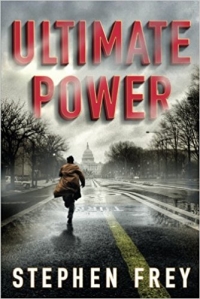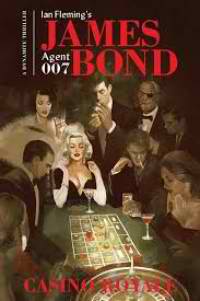American Histories by John Edgar Wideman
 Friday, April 13, 2018 at 9:08AM
Friday, April 13, 2018 at 9:08AM 
Published by Scribner on March 20, 2018
American Histories is John Edgar Wideman’s new story collection. The four stories I’ll first mention here are masterful. The others are quite good, and the volume as a whole is another tribute to an important American writer who crafted a style that is uniquely his own. In a couple of the stories, Wideman describes his writing as unimportant, as compared to the things that smarter people do. I hope Wideman understands that his work is not just important: it’s vital.
“Williamsburg Bridge” is narrated by a man standing on the bridge where Sonny Rollins used to play his sax. The improvisational nature of jazz, its controlled chaos, fuels this story. The man has shed nearly all of his clothes and is preparing to jump, or not. He equates death with freedom, although he wonders if the bridge cops might shoot him before he has a chance to kill himself, taking away his freedom to choose, as freedom has so often been taken from people of color. He catalogs the many reasons he might want to commit suicide, but none are his motivation. It isn’t clear whether he even understands why he might choose to die, or to live. He hears “that question — why? —drum-drum drumming in my eardrums, the only evidence of my sanity I was able to produce.” He asks the reader whether you’re grateful that it’s his turn, not yours, at the edge. The story plays with images of color, from skin color to whitespace to colors in the East River ranging “from impenetrable oily sludge to purest glimmer.” (Edges and color are among several recurring themes in these stories.)
“Maps and Ledgers” is about families and hard times, the family histories that people don’t talk about — the father who killed a man, the son sentenced to life in prison, the grandmother with serial husbands. Bad things happen and the only thing you can count on is that life will get worse. Black and white families live apart, interacting but not really. The narrator speaks white English to whites and black English at home in his segregated neighborhood, in a society divided by laws and power that serves itself. “Don’t let the ugly take you down” the narrator’s mother says, and that’s the story’s lesson, but the lesson is easier to say than to live.
“JB & FD” are John Brown and Frederick Douglas, two men who tried to free America from the oppression of slavery. Told as an imagined conversation or correspondence over time, the story is about their fundamental agreements and disagreements, their differing strategic approaches to abolishing slavery. Douglas wishes to offer his life, not his death, to his people. Brown is convinced that an armed raid on Harper’s Ferry will spark a slave rebellion that makes the risk of death worth taking. Both men believe that change must come. The story ends with the rambling narrative of another John Brown, the son of Jim Daniels, who was rescued from slavery by John Brown and named his son after the man who gave him freedom. Wideman’s story reminds us that freedom is too precious to waste.
“Nat Turner’s Confession” takes on the controversial “confession” that Thomas Gray claimed to have received from Nat Turner. Most of Wideman’s story, like William Styron’s novel The Confessions of Nat Turner, is told in the first person from Turner’s perspective (“I am called Nat Turner, a name made up for the convenience of sellers and purchasers of me”), providing an alternative to the “confession” that Gray likely fabricated, at least in part. But other voices intrude in Wideman’s story, including Turner’s mother (representing the tribulations of all enslaved women) and a confession by Nate Parker (who made a movie about Nat Turner several years after being acquitted of rape). Wideman imagines Turner having a love/hate relationship with white people, a fear that he will miss them if he kills them all, a belief that “until they are gone, we will not truly cleanse ourselves of the belief that we are nothing without them.” Like many of Wideman’s stories, this one overflows with the joy of language and its rhythms.
Most of Wideman’s stories are deeply personal. “New Start” uses an aging couple watching Downtown Abbey to ask whether all our lives are performance, whether we need an audience of at least one to make them real. Our lives are stories, true stories “until we tumble out of them and then they are different and true again,” the ending unwritten and feared. In “Examination,” a visit to the doctor’s office triggers a riff on edges and democracy and social constructs and death, real and imagined. “The Writing Teacher” is about a professor, very much like Wideman, who tries to help students understand that their stories won’t appeal to every reader and that their fiction probably won’t change an intransigent and unfair world, admirable though it is to want to topple empires or to expose naked emperors. (Empires are another recurring theme.)
“Dark Matter” is about the things people discuss over dinner, but more importantly, it’s about the fact that friends go out to dinner and discuss things. “Shape the World Is In” is a monologue by a guy who is thinking about life as he sits on the toilet. “Yellow Sea” is about the evil in the world that keeps the narrator awake at night.
“My Dead” is more a contemplation of Wideman’s dead relatives than a story, but it is also a contemplation of mortality, of the impudence of life and the arbitrariness of death, of the recognition that only after people die do we really begin to give their lives the full consideration they deserve. “Bonds” is a sweet story about a woman who struggles not to give birth on an unlucky day to a child who will have enough bad luck being born into poverty and prejudice.
A few of the stories are sketches or vignettes. They discuss lines and names and death, the way things change and don’t, the divisions of people within an empire, the whiteness of snow. All of them are interesting, although I would classify some as essays rather than stories. A longer essay in the form of fiction imagines conversations between Romare Bearden and Jean-Michel Basquiat. In the end, it doesn’t matter how these pieces are categorized, because good writing has value for its own sake, and American Histories is a collection of very good writing.
RECOMMENDED



